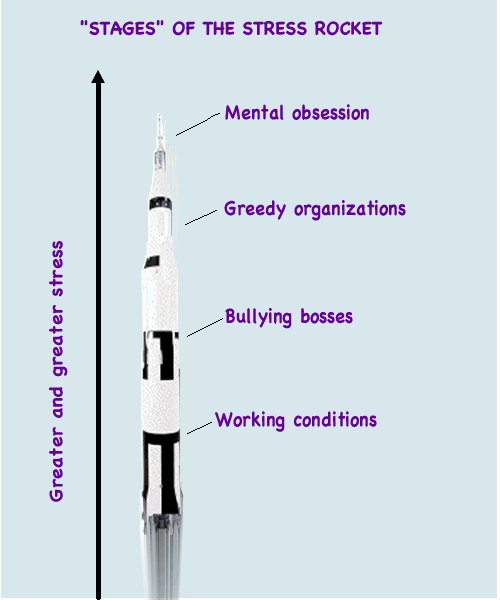How to find and recognize a civilized job
Guidelines for making sure that the place where you work is a place you will go on wanting to be.
Spotting the signs of undue pressure and macho management is useful, but, if you’re considering a job change or just starting out on a career, seeing when a job will be civilized is just as important. You need to know what to seek out, not just what to avoid once you’ve found it.What are the signs of civilized work? If you want to choose an employer, a job, and a career wisely, these are the things to look for:
- Work with a manageable workload that allows enough time over for pursuing new ideas and making a personal contribution. Everyone needs the opportunity to put more of themselves into their work than just the labor of completing scheduled tasks. Overwork doesn’t just ruin work/life balance, in the sense of time available for non-work activities. It also stops work itself being satisfying. There’s never any time to step outside the strict confines of the daily grind to explore new ideas or approaches. The to-do list becomes a prison that blocks out everything else.
- Clear evidence that others will value and respect what you do. It’s hard to take a pride in your work if no one cares how you do what you do, just so long as you meet some specific targets. It’s far more satisfying to feel that you can win respect for a job well done than simply reach some goal by any available means. Hitting that target comes only occasionally (and you know it will be followed by a new, higher one). Knowing that you’re doing a fine job, and that people recognize you for that, can be a daily source of pleasure in your work.
- A chance to work with people whom you respect and whose opinions you value. No amount of money will ever make up for working for a boss whom you think is an idiot and an asshole; or with people whom you neither like nor respect. Work is a social environment. Unless that environment suits you and gives you pleasure from being there, each day is going to be eight or more hours of misery. That’s why corporate culture matters so much. Trying to live and work in a toxic culture is like trying to exist in a cloud of poisonous gases.
- A reasonable degree of control over what you do and any decisions that affect your job. Anything else is slavery. You shouldn’t accept it for an hour, regardless of how much you’re being paid.
- Work that means something to you and matches your values. Doing meaningless work is soul-destroying drudgery. Doing work that you don’t value will leave you feeling empty and dissatisfied at the end of every day. The only way to feel good about what you do is to do something that makes you feel good in itself. If, for example, you try to shut your mind to a toxic culture and management style that makes you feel bad every time you think about it, how are you going to feel after a month, six months, a year? You’ll have to abandon your own values and conscience to survive. But whatever you do, somewhere deep inside you’ll know you’re behaving like a coward and spitting on things that you hold dear. That knowledge will eat away at you until it destroys all your peace of mind.
- A culture that values fairness, justice, and an ethical approach to business. Too many organizations today act as if the ends justify the means, and honesty and ethical values are indulgences that they can’t afford. You can sense it like a bad smell in the background. Ignore all the flashiness and forced good comradeship. If something in the air that you can’t quite pin down makes you feel sick, take good heed. Compromising with nastiness and dishonesty will rub off on you like a disfiguring skin disease. Besides, if the culture allows dishonesty, subterfuge, unethical practices, and unfair treatment in the cause of profit, that’s how it will treat you.
- A willingness from those in senior positions to listen. Few things are so frustrating as a management culture based on closed minds and open mouths. Nothing leads more quickly to failure, despotism, and the punishment of the innocent. Be warned!
- An organization that values honest feedback and takes notice when staff aren’t happy. Any organization that punishes people for rocking the boat, demonizes whistle-blowers, and rewards yes-men should be seen for what it is: a gang of mindless thugs. Get away as fast as you can run.
- A sensible attitude from the organization and the bosses to the position of work in each person’s life. It’s quite reasonable for the organization to expect loyalty, commitment, solid effort, and an appropriate input related to level and salary. It is wholly unreasonable to expect anyone to sell their life and soul to their employer in return for cash. Anyone who does that is far more shameless than any prostitute. Prostitutes only sell their bodies. An organization who demands that you sell your heart and soul as well is many times worse than any pimp.
- The willingness to continue to change as circumstances change. A rigid organization—especially one that works on the basis of “our way or the highway”—is both arrogant and stupid. Why would you even consider becoming part of that?
Happiness and satisfaction at work is always a choice. You can (and should) choose what you believe will work for you and give you the kind of life you want to have. Never choose just what will offer the most cash and power in the shortest time, regardless of anything else. You’ll regret it in very short order.
The choice won’t always be an easy one; it may cost you effort, determination, and forgoing some amount of money and what it can buy to choose happiness. Nor will it always be black versus white. But the more often you can choose wisely from among the available alternatives, the more often, I believe, you will find work that enhances your life, instead of diminishing it.
Labels: career choice, civilized work, enjoying work, self-preservation

















